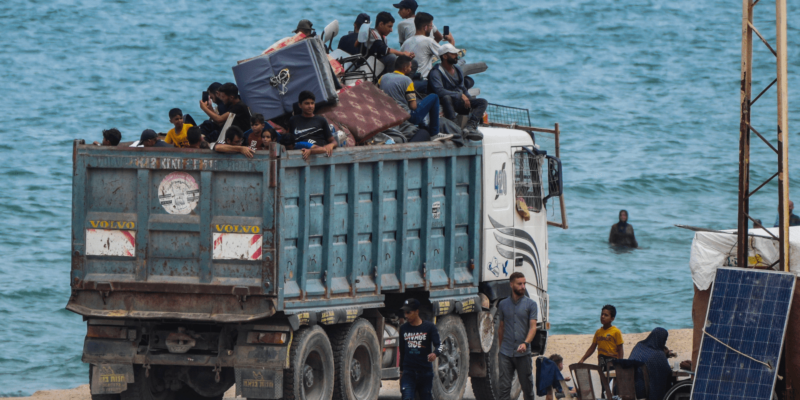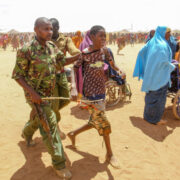
Israel on Saturday ordered hundreds of thousands in Rafah to evacuate immediately as Israeli military forces prepared to expand further into Gaza’s southernmost city amid a devastating humanitarian crisis. The warning, which arrived in the form of dropped leaflets, came despite a rare threat from President Biden this week that he would withhold certain weapons if Israel advanced further into Rafah.
At least 300,000 people affected as further areas across #GazaStrip receive new evacuation orders today, both towards central #Rafah in the south AND #Jabalia in north #Gaza@UNRWA estimates 150,000 people have now fled #Rafah since Monday, looking for safety where there’s none. pic.twitter.com/9UNfo6b0rW
— UNRWA (@UNRWA) May 11, 2024
More than half of Gaza’s population have fled to Rafah since the start of Israel’s military operations in the north, pushing the densely populated city, which also serves as a critical passageway for transporting aid into Gaza, to a “breaking point.” Now facing an imminent ground invasion, as well as vows by Israeli Prime Minister Benjamin Netanyahu to fight “with our fingernails” if the US follows through on its threat to cut off certain weapons, displaced Palestinians are forced to flee once again. To where, it’s exceedingly unclear, as Gaza’s north has already been decimated by months of bombing.
“The bombing and shelling is incessant,” Bridget Rochios, a certified nurse-midwife from California volunteering at Rafah’s last maternity hospital, told Mother Jones this week. “And there’s nowhere else to go.” Rochios described scenes of horror where basic medical supplies such as gloves and scissors are nearly gone; doctors are forced to use razors to remove umbilical cords; and the lives of 50 newborns in the intensive care unit hang in the balance.
The new evacuation orders came less than a day after a long-awaited US report criticized Israel’s war conduct, saying that it was “reasonable to assess” that Israel has used American weapons in ways that are “inconsistent” with international law. Though it marked a rare instance of criticism by the US, the report ultimately said that the US did not see evidence to support a stop to arms supply.
Shortly after the report’s release, the US voted to oppose a United Nations resolution, mostly symbolic, in support of Palestine’s full-member status.















